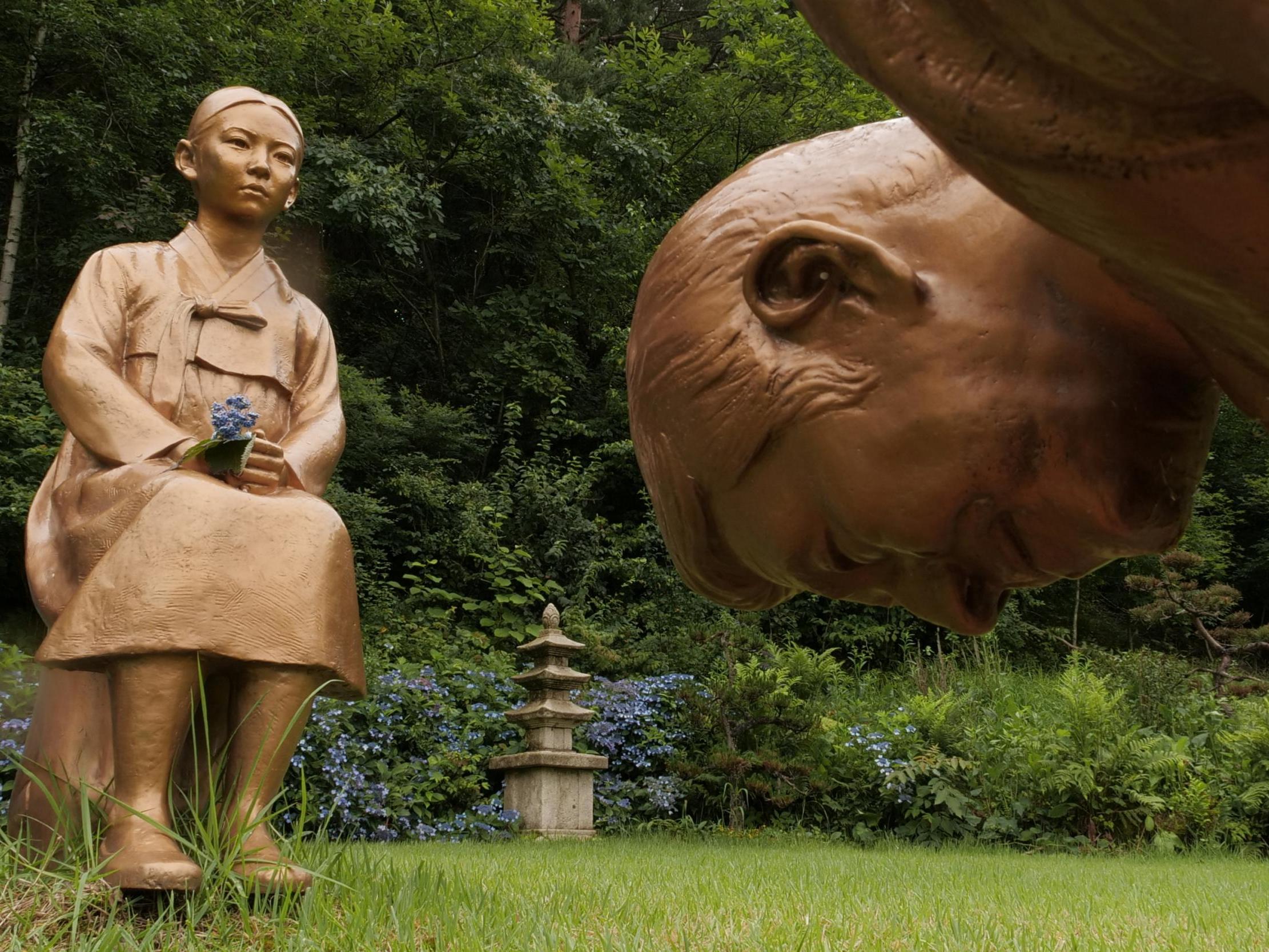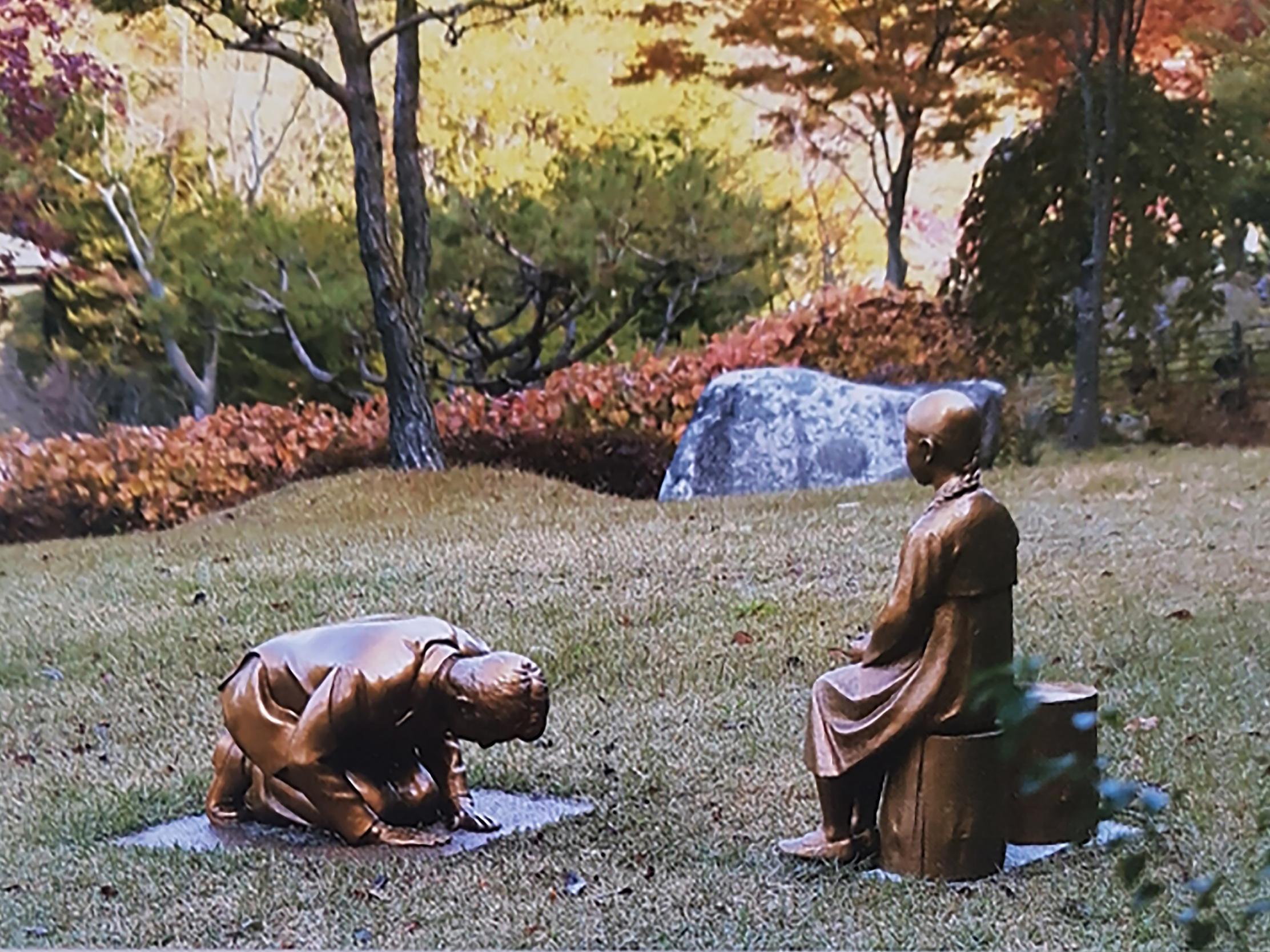Japan warns South Korea over statue appearing to show Shinzo Abe bowing to 'comfort woman'
Depiction could have 'decisive impact' on relations between the two countries, says Tokyo

A pair of new statues in South Korea symbolising the victims of sexual slavery at the hands of Japan’s Second World War military sparked a diplomatic incident when officials in Tokyo questioned the resemblance of one the statues to prime minister Shinzo Abe.
The statues are on display at a botanical garden in the rural town of Pyeongchang and depict one of the “comfort women”, who were forced to work in Japan’s wartime brothels, and a man kneeling and bowing before her, who appears to resemble the Japanese leader.
Yoshihide Suga, Japan’s chief cabinet secretary, said that if reports on the statue were accurate "there would be a decisive impact on Japan-Korea relations”.
"I think such a thing is unforgivable under international courtesy," Mr Suga told a press conference on Tuesday.
Kim Chang-ryeol, owner of the botanic garden, said the statues were his idea but that he did not specifically intend the male figure to look like Mr Abe.
“The man could be Abe and also couldn't be Abe,” he said. “The man represents anyone in a position of responsibility who could sincerely apologise to the victims of sexual slavery, now or in the future. It could even be the girl's father ... That's why the statues were named 'Eternal Atonement.’ “
The statues also drew criticism among some South Koreans, who described them as tacky or excessively provocative on social media. Mr Chang-ryeol defended the statues, saying they reflect his wish for the countries to resolve their conflicts over history.

Mr Abe, who has led Japan since 2012, has previously demanded that South Korea remove similar statues symbolising sexual slavery victims from in front of the Japanese Embassy in Seoul and other sites.
Disputes over sex slaves are a legacy of Japan's colonial occupation of the Korean Peninsula between 1910 and 1945. Historians say tens of thousands of women from around Asia, many of them Korean, were sent to front-line military brothels to provide sex to Japanese soldiers during the Second World War.
Relations between South Korea and Japan sank to their lowest point in decades last year as they allowed their decades-long dispute over wartime history to spill over into issues related to trade and military cooperation.
Kim In-chul, South Korea's foreign ministry spokesperson, said that countries should consider courtesy in regard to foreign heads of state, but did not provide a clear answer when asked whether private citizens should be asked to follow such practices.
Additional reporting by agencies
Join our commenting forum
Join thought-provoking conversations, follow other Independent readers and see their replies
Comments